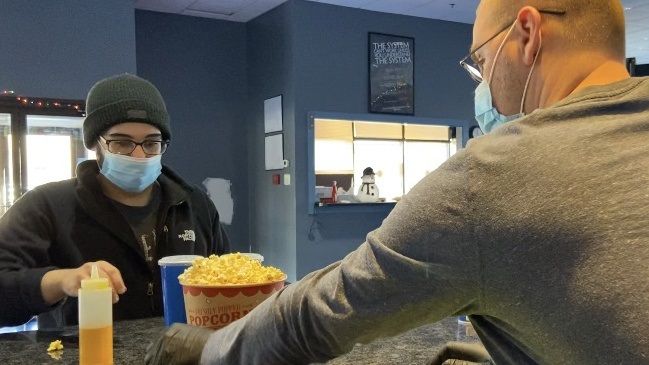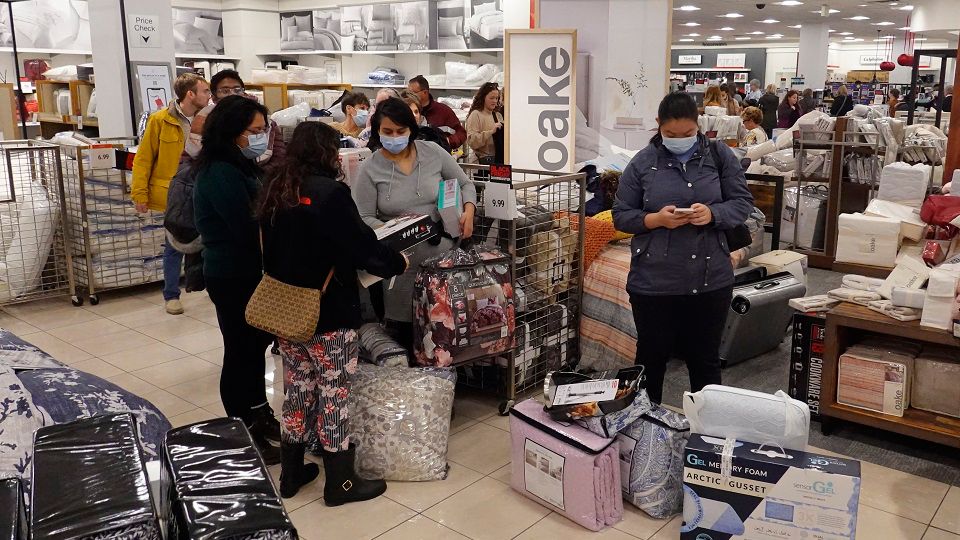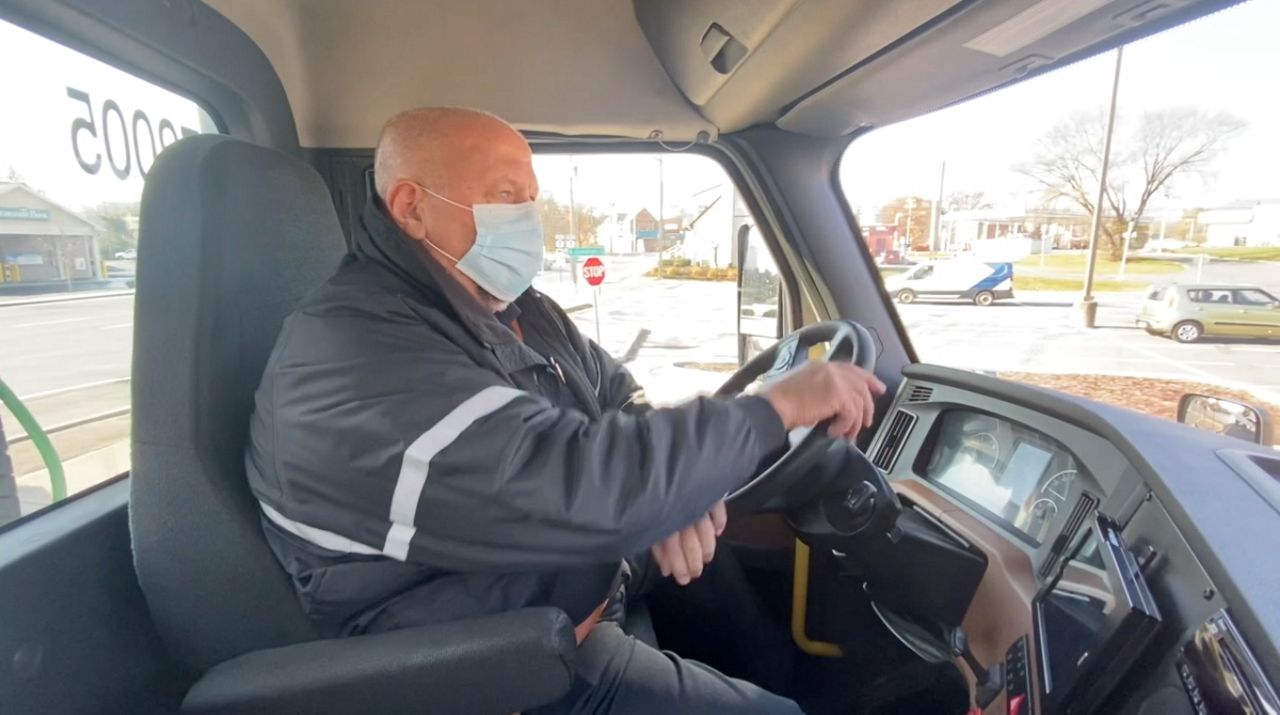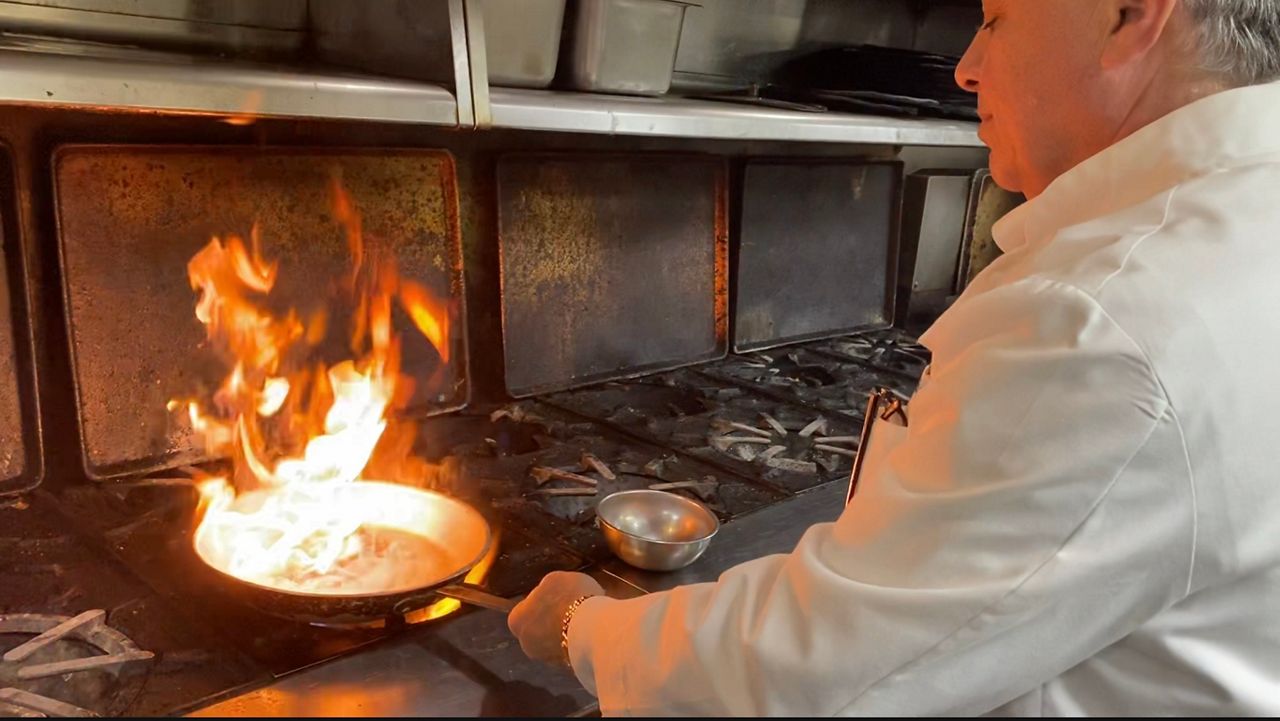Noble Gas Solutions has been in Colleen Kohler’s family for about half of its 80-year history.
“My father came into the business 45 years ago and was very eager to succeed in life,” said Kohler, who’s the company’s executive vice president. “He started out in sales. He was running the sales department and he purchased the company in 1985.”
What You Need To Know
- Pfizer's upcoming COVID-19 vaccine needs to be kept at sub-zero temperatures to remain stable
- Most local hospitals, clinics, and nursing homes will rely on dry ice to keep the vaccine cold once it arrives
- Noble Gas Solutions in Albany is the only manufacturer of dry ice within 150 miles of the Capital Region
Noble Gas Solutions’ Albany headquarters doubles as a retail location and as a production plant.
“[We have] an automated fill island. We purchased this four years ago,” Kohler said of the largest piece of equipment inside the plant. “It’s one of the only automated fill islands on the East Coast.
Plant manager Bill Need said the automated fill island allows the company to provide an array of gases to its customers in the welding, construction, and medical industries.
“On this island, we can fill nitrogen, argon, helium, oxygen, mixed gases,” Need said.
“It allows us to be very precise when we’re doing gas mixtures,” Kohler said. “Most other welding and gas distributors do everything by hand.”
As a major supplier of oxygen to hospitals and nursing homes, Kohler said the pandemic has made them busier than ever.
“It was crazy when COVID happened in March because we just have never been busier,” Kohelr said. “All of our products have been needed 24/7. We’ve needed to be accessible 24/7.”
One of the biggest products Noble Gas Solutions provides to the medical industry is dry ice, or frozen carbon dioxide. Kohler said Noble Gas is the only manufacturer of dry ice within 150 miles of Albany, and they’re able to produce it in three different forms.
“You can see this is a different form of dry ice,” Kohler said while pointing to the machine in the rear of the facility. “This is coming out as rice, and the pellets are coming out over here.”
At a temperature of roughly 100 below zero Fahrenheit, dry ice typically won’t melt for at least three days. After it was announced Pfizer’s upcoming COVID vaccine needs to be stored at sub-zero temperatures, Kohler said their phone began ringing off the hook.
“We are pretty much running our dry ice machine consistently all throughout the day,” she said.
As the leaders of a company that’s been behind the scenes in the fight against the coronavirus, Kohler said her family takes great pride in their work.
“When COVID first started, I remember working from home and getting calls in the middle of the night from people saying 'we need you to help us get medical oxygen for New York State,' ” Kohler said. “It’s a lot of pressure, but it’s a huge honor to receive a call like that. I never thought that day would come.”









